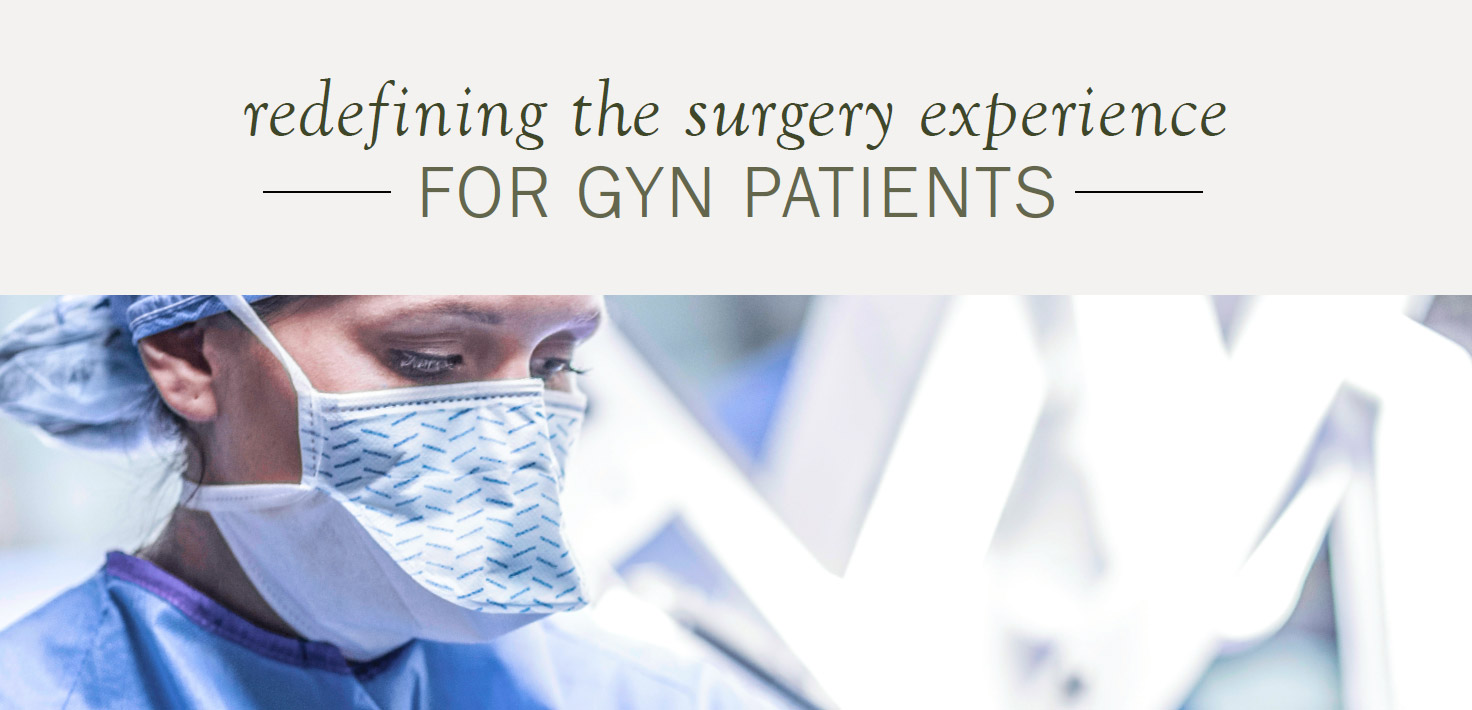With a comprehensive gynecological surgery program and a specialized provider in pelvic health and reconstructive surgery, Northeast Georgia Physicians Group OBGYN offers a high-level of expertise in the conditions that can create a need for a hysterectomy, as well as the surgery itself.
Hysterectomy is the second most common surgery for women in America. Choosing the right surgeon with extensive experience can make a difference in long-term outcomes for your surgery. If you or a loved one are considering hysterectomy, you can rely on our gynecological surgery program at NGPG OBGYN to provide the most modern and effective options available.
What is a hysterectomy?
A hysterectomy is a gynecological surgical procedure to remove the uterus. The uterus is the area within a woman’s body where a baby grows when she is pregnant. During a hysterectomy, your doctor will remove your entire uterus. In some cases, your doctor will also remove the ovaries, fallopian tubes and cervix. After a hysterectomy, you will no longer have a menstrual period and will be unable to get pregnant.
Who should get a hysterectomy?
Hysterectomy can significantly improve symptoms for any number of conditions, including uterine fibroids, endometriosis, uterine prolapse and other conditions, and choosing the right program can make all the difference in your recovery and long-term outcomes. Your doctor may recommend a hysterectomy if you have any of the following conditions:
- Abnormal uterine bleeding
This refers to any bleeding from the uterus that is abnormal is frequency, length and amount, and may occur outside of the menstrual cycle. - Chronic pelvic pain
This refers to pain in the pelvis or lower abdomen that lasts for longer than six months. - Fibroids
Non-cancerous tumors of the uterus. - Endometriosis
This is a pelvic condition where the uterine lining grows outside the uterine cavity causing pain. - Uterine prolapse
This is a condition that occurs when your uterus drops and pushes down in the vagina. - Gynecological cancer
Cancers of the uterus, ovary, cervix, fallopian tube, or peritoneum. - Pelvic inflammatory disease
This is an infection in the uterus or fallopian tubes that can cause pain and infertility.
What are the types of hysterectomies?
There are several types of hysterectomies that involve the removal of different reproductive organs and tissues. These types include:
- Supracervical hysterectomy
Removal of the uterus but not the cervix. This is typically done for abdominal sacrocolpopexy (a vaginal prolapse procedure) or when there is scar tissue preventing removal of the cervix. Women who keep the cervix are still at risk of developing cervical cancer and require routine pap smear screening after surgery. - Full (complete) hysterectomy
This involves the removal of the entire uterus as well as the cervix. After a full hysterectomy, you will no longer have periods or be able to become pregnant and will not need routine pap smears. - Full hysterectomy & salpingo-oophorectomy
This involves the removal of the uterus, cervix, both fallopian tubes and ovaries. This procedure will cause immediate menopause, as it involves removing the ovaries, and you will no longer become pregnant or menstruate.
What surgical methods are used for a hysterectomy?
There are several surgical methods used to perform a hysterectomy. Your NGPG OBGYN provider will work with you to determine the most appropriate hysterectomy method for your case. Hysterectomy surgery methods include:
- Abdominal hysterectomy
This surgery requires an incision in the abdomen to access and remove the uterus. - Vaginal hysterectomy
This surgery involves the removal of the uterus through an incision in the vagina. You will not have any scars because there are no external cuts. - Laparoscopic hysterectomy
This is a minimally invasive procedure to remove the uterus using specialized surgical tools to perform the surgery with small incisions on the abdomen. The uterus can then be removed through an incision in the vagina or in small pieces through the small abdominal incisions. - Robot-assisted laparoscopic hysterectomy
This is a specialized type of laparoscopic hysterectomy that is performed with the help of a robot controlled by the surgeon. By offering single-site robotic hysterectomy, we can significantly reduce hospital stay, recovery time and pain for this procedure.
Open surgery hysterectomy can require up to two months of recovery time, while single-site hysterectomy typically offers next day release from the hospital and much shorter recovery after.
What are the risks of hysterectomy?
While a hysterectomy is generally a safe procedure, there can be risks associated with the procedure, including:
- Injury to the bladder, intestines, or blood vessels
- Heavy bleeding at the incision site
- Infection around the incision
- Blood clots in the legs that can travel to the lungs
- Breathing or heart problems related to anesthesia
Choose NGPG for Hysterectomy Surgery
NGPG is home to experienced providers you can trust. With our convenient locations across northeast Georgia, NGPG provides easy access and scheduling. Our approach to gynecologic services always centers care on the patient and family. If you or a loved one are trying to find a surgeon to perform your hysterectomy, you can rely on our team at NGPG OBGYN for excellent surgical care.
We preform our surgeries with state-of-the-art technology at Northeast Georgia Medical Center, providing our patients access to minimally invasive laparoscopic and robotic surgery options. By offering these options, we can minimize your stay in the hospital, shorten recovery times and reduce pain from surgery. NGMC Gainesville is the first hospital in Georgia to have received accreditation from the SRC as a Center of Excellence in minimally invasive gynecology.


